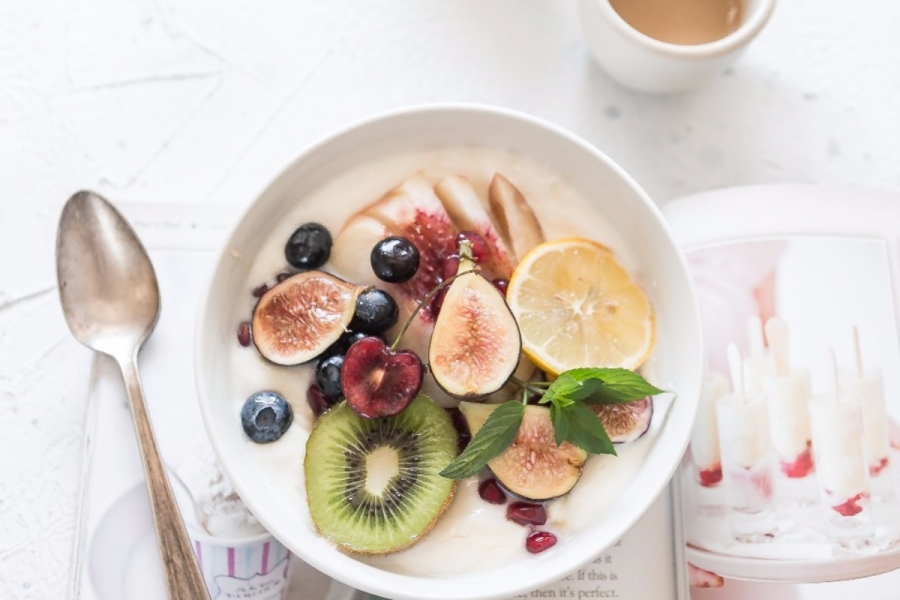Eating before a workout is important in order to keep your blood sugar levels high enough so that you don’t get tired too easily or experience dizziness. But the thing is, it’s not enough to just get full. The food you eat is like fuel that your body uses, and you need the right kind of fuel for your body to be able to push its limits. Consuming empty calories before exercising is just counterproductive, so it’s important to be informed about which exact foods you need to eat, not only to perform better, but also to recover faster and keep muscle damage to a minimum. Besides knowing what to eat, there are two other important factors that we will cover in this article – when you eat in relation to the time of your workout, and in which quantities.
The Macronutrients
These are the chemical compounds which provide humans with the bulk of energy. The three main macronutrients are the carbohydrate, protein, and fat. All three play a role in fueling your body for physical activity and should be combined adequately into pre-workout meals.
-
Carbohydrate
The simple sugar, glucose, circulates in the blood of humans as blood sugar, and your muscles use the glucose from carbohydrates as energy. It is stored in your muscles and liver as glycogen, and during short and high-intensity workouts, these stores of glycogen are your primary source of energy, slowly depleting as you use them all up (that is why your performance diminishes as time passes). Eating carbs is the way to maximize glycogen stores so you can empty them again through exercising.
-
Protein
Proteins, which are macromolecules made up of linked smaller molecules called amino acids, are often referred to as the main building blocks of the body, and life would be impossible without them. The human body uses protein to synthesize muscles, tendons, organs, enzymes, hormones, neurotransmitters, etc. So, as you can probably conclude from this, consuming protein prior to exercising will help increase muscle protein synthesis in your body, and the benefits include: increased muscle performance, increased strength and lean body mass, muscle growth, and faster recovery once you’ve finished the workout.
-
Fat
Just as carbs are the source of fuel for short, high-intensity workouts, fats are also an important source of energy, but, because humans digest fats very slowly, our bodies use them as fuel for longer workouts of moderate to low intensity. To avoid cramps, fats shouldn’t be eaten less than two hours before exercising. This brings us to the next topic – the timing of your pre-workout meal.
When Should You Eat?
The healthiest, most effective option is to eat a complete meal, containing all three of the primary macronutrients, 2 to 3 hours before exercising. But it’s understandable that sometimes you cannot organize your day to fit in a proper meal at the right time. Meals that are closer to the time of your workout, logically, should be smaller and simpler to digest. That is, they should be just snacks, containing mostly carbs and some protein, so that you won’t feel uncomfortable and sluggish or experience nausea. If you can’t fit in a nutritious snack at least 45 minutes before exercising, it’s better to make your workout shorter that day in order to buy time to have a balanced snack and digest it properly. Also, studies have shown that consuming vitamins close to your workout may actually reduce the benefits you’re looking for, so leave them for later.
Suggestions
-
Snacks
Smoothies and milkshakes are the absolute favourite pre-workout snack, since there are so many options to choose from and experiment with, all packed with the nutrients you need but light and easy to digest. Most active people enrich their smoothies or milkshakes with protein supplements such as True Protein, because that way you can ensure you get everything you need, without overloading.
Fruit combined with Greek yogurt is another classic. It’s a perfect combination to eat an hour or less before exercising, because Greek yogurt contains almost twice the amount of quality protein than regular yogurt, which your body breaks down slowly and uses later to prevent muscle damage, and fruits are high in carbs that you will use as fuel right away. One cup 30 to 45 minutes before working out is the recommended quantity, and if you get bored of this, another good option is cottage cheese.
-
Meals
If you have more time ahead, before exercising, you can eat heartier meals and incorporate more fats into it. Since avocado is a very healthy source of fat, try combining it with different sources of carbs and protein for a delicious meal. And of course, make use of the classic recipe of chicken and brown rice. You can switch things up all the time and substitute the rice with quinoa, sweet potatoes or other whole grains and starchy vegetables.
Now that you have a good idea of how things work, make use of it and the numerous recipes in order to maximize the effects of your workout and help your body push its boundaries. If you’re trying to lose weight, don’t get fooled into thinking that skipping calories is the best option for you – remember, your body needs the fuel. No matter what, never resort to eating raw sugar or candy for a quick carb load, because these will only provide you with a sugar rush and most likely, a crash in the middle of your workout. Be disciplined, be smart and choosy about what you eat, enjoy yourself in the process, and your body will thank you later in return.
